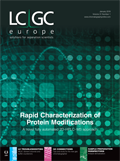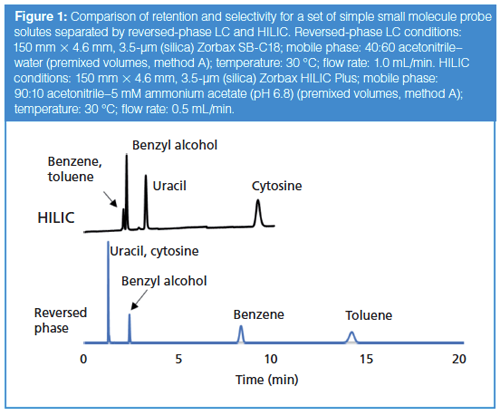Microscale Separations and Bioanalysis (MSB 2018)
The 34th International Symposium on Microscale Separations and Bioanalysis (MSB 2018) will be held at the conference centre of the Windsor Barra Hotel (Barra da Tijuca) in Rio de Janeiro, Brazil, from 18–21 February 2018.
Photo Credit: T photography/shutterstock.com

The 34th International Symposium on Microscale Separations and Bioanalysis (MSB 2018) will be held at the conference centre of the Windsor Barra Hotel (Barra da Tijuca) in Rio de Janeiro, Brazil, from 18–21 February 2018.
MSB 2018 is a leading international conference on microscale separations and bioanalysis and spans new advances in technology and method development (miniaturized sample pretreatment, multidimensional separations, nano- and micro-liquid chromatography [LC] column developments, capillary electrophoresis [CE] and microfluidics, and interfacing approaches and mass spectrometry [MS]) with cutting-edge applications relevant to human health and the environment.
MSB 2018 will feature stimulating pre-conference short courses, distinguished plenary speakers, and a parallel programme covering a wide spectrum of current microscale bioseparation techniques.
Since its inception in 1989 (Boston, Massachusetts, USA), MSB has evolved into an interactive forum for the discussion of cutting-edge research on the frontiers of separation science. The symposium format encompasses several significant features, including a scientific programme where over 70% is based on submitted abstracts, a double-blind peer-review process ensuring top science regardless of reputation and seniority, oral presentations with a third of the time reserved for active discussion, topic sessions introduced and chaired by leading researchers, poster sessions with selected 3-min talks, and Science Café lunch seminars by vendors presenting advances in commercial separation technology. MSB 2018 particularly welcomes young researchers and encourages their participation in the symposium by offering travel grants to students and postdocs, provided by a number of organizations. In addition, the top 10 posters and the best oral presentation by a young researcher will be awarded during the symposium.
The oral programme comprises five plenary speakers, 18 keynotes, and approximately 50 oral presentations in a parallel programme. Topics include fundamentals, simulations and method development, sample preparation techniques, multidimensional separations, microcolumn technologies, detection techniques, hyphenated and interface designs, microfluidics, biologics and biopharma, biointeractions and affinity separations, forensics, pharmaceutical and chiral analysis, glycomics, metabolomics, proteomics, lipidomics, and food analysis.
MSB 2018 will feature a founder lecture by Norberto A. Guzman (Princeton Biochemicals Inc., Princeton, New Jersey, USA), in addition to other renowned scientists in the field, including John R. Yates (The Scripps Research Institute, La Jolla, California, USA), Aaron R. Wheeler (University of Toronto, Ontario, Canada), and Marcos N. Eberlin (University of Campinas, Campinas, São Paulo, Brazil). One plenary lecture will be provided by the winner of the Arnold O. Beckman Medal and Award for outstanding achievements in the field of electrodriven separation.
Registration includes lunches, opening and closing receptions, and a symposium dinner at the iconic “Pão de Açúcar” (Sugar Loaf) scenic venue. The daily Science Café lunch seminars will provide refreshments during discussions of advances in commercial separation technology, alongside presentations by sponsors presenting new methods and instrumentation.
MSB 2018 is just one week after Carnival in Rio, and attendees are invited to come a day earlier for a pre-symposium social activity: the Champion’s Parade of Rio Samba Schools on 17 February 2018.
Key dates include: 19 January 2018 (deadline for early bird registration), 26 January 2018 (deadline for poster abstract submission), and 9 February 2018 (deadline for submission of late breaking abstract). More details are posted at www.msb2018.org and additional questions can be sent to msb2018@iq.usp.br.

New Study Reviews Chromatography Methods for Flavonoid Analysis
April 21st 2025Flavonoids are widely used metabolites that carry out various functions in different industries, such as food and cosmetics. Detecting, separating, and quantifying them in fruit species can be a complicated process.
Quantifying Terpenes in Hydrodistilled Cannabis sativa Essential Oil with GC-MS
April 21st 2025A recent study conducted at the University of Georgia, (Athens, Georgia) presented a validated method for quantifying 18 terpenes in Cannabis sativa essential oil, extracted via hydrodistillation. The method, utilizing gas chromatography–mass spectrometry (GC–MS) with selected ion monitoring (SIM), includes using internal standards (n-tridecane and octadecane) for accurate analysis, with key validation parameters—such as specificity, accuracy, precision, and detection limits—thoroughly assessed. LCGC International spoke to Noelle Joy of the University of Georgia, corresponding author of this paper discussing the method, about its creation and benefits it offers the analytical community.
Understanding FDA Recommendations for N-Nitrosamine Impurity Levels
April 17th 2025We spoke with Josh Hoerner, general manager of Purisys, which specializes in a small volume custom synthesis and specialized controlled substance manufacturing, to gain his perspective on FDA’s recommendations for acceptable intake limits for N-nitrosamine impurities.












